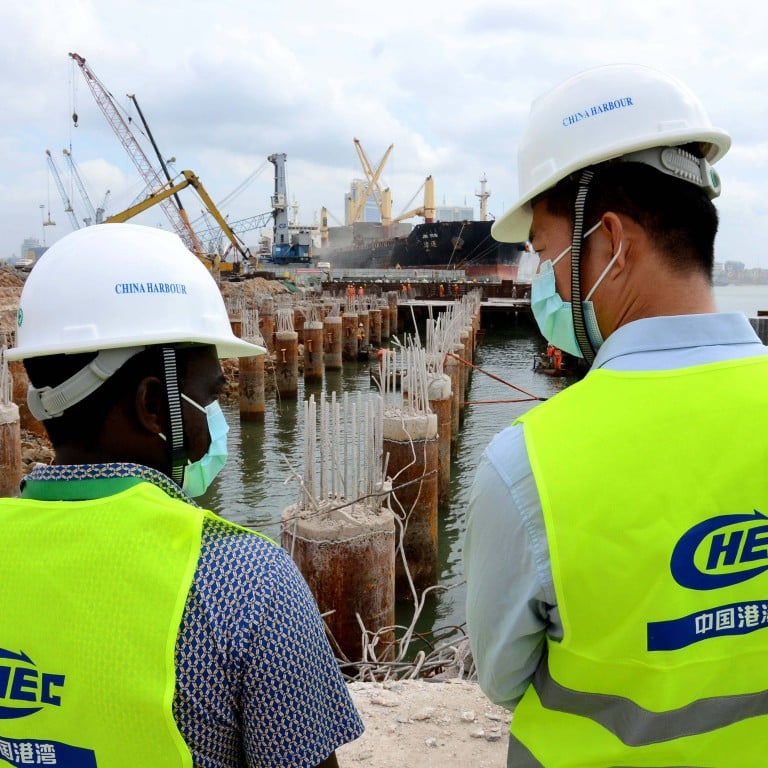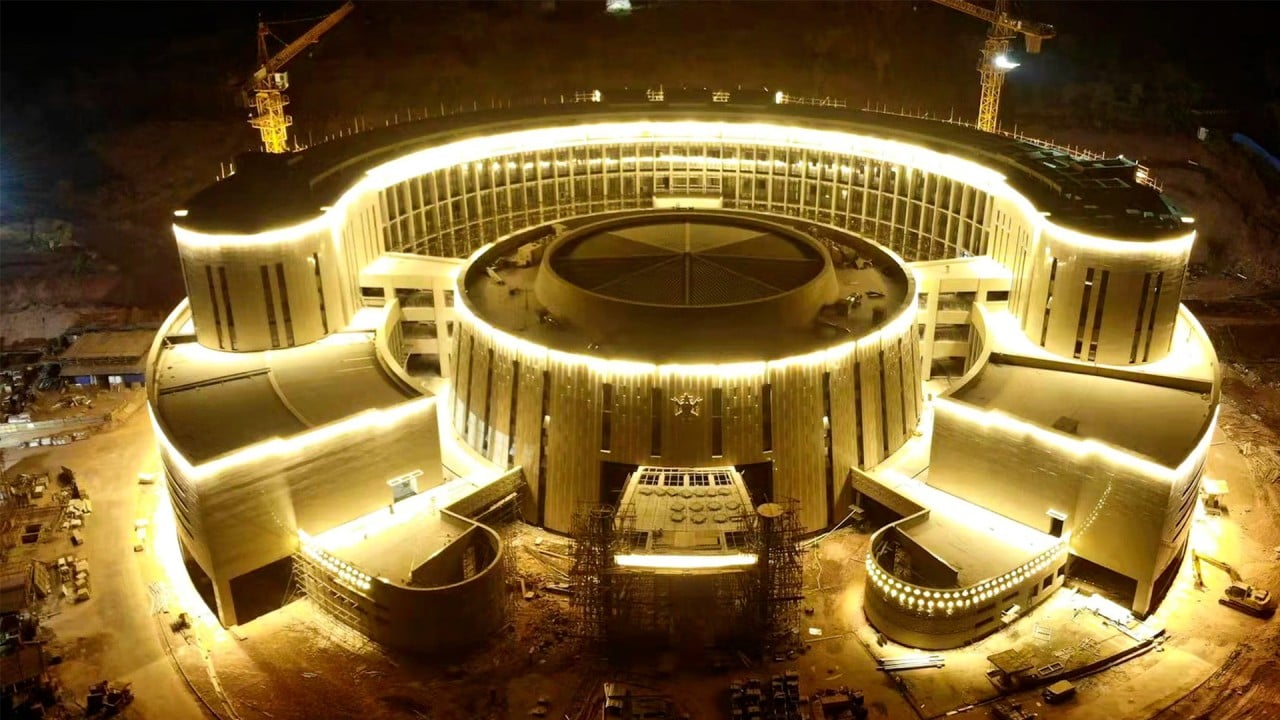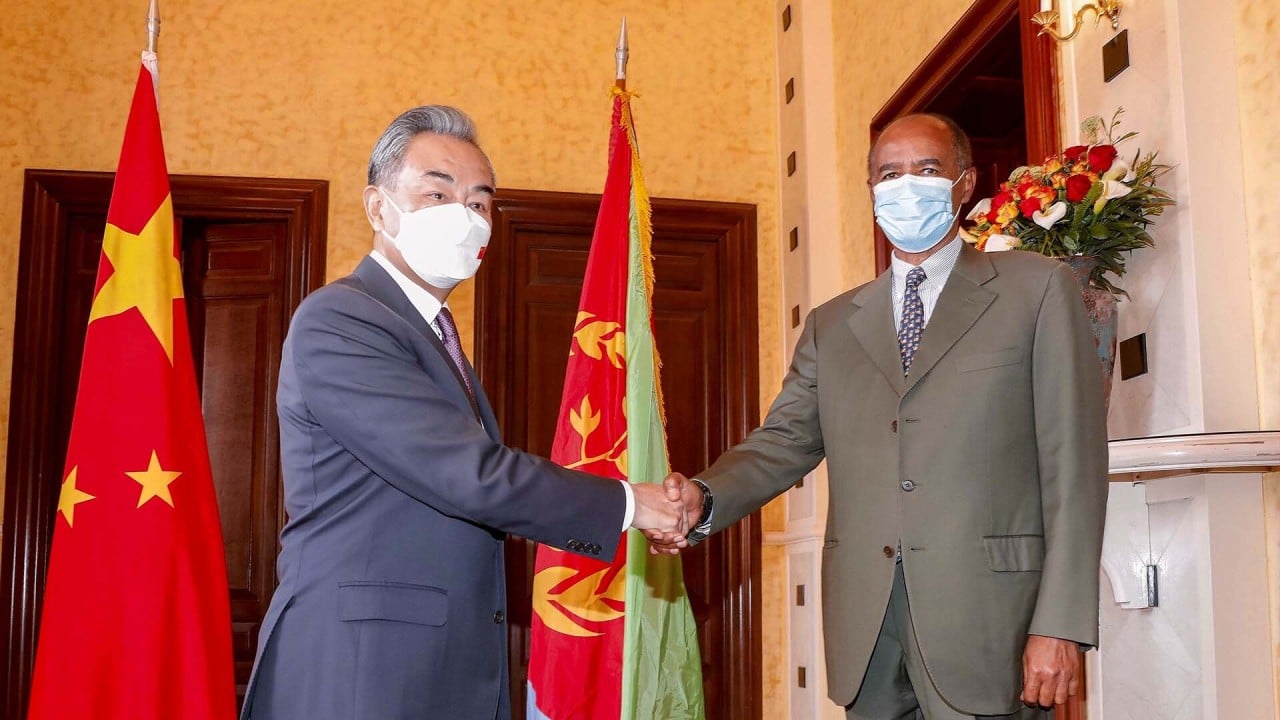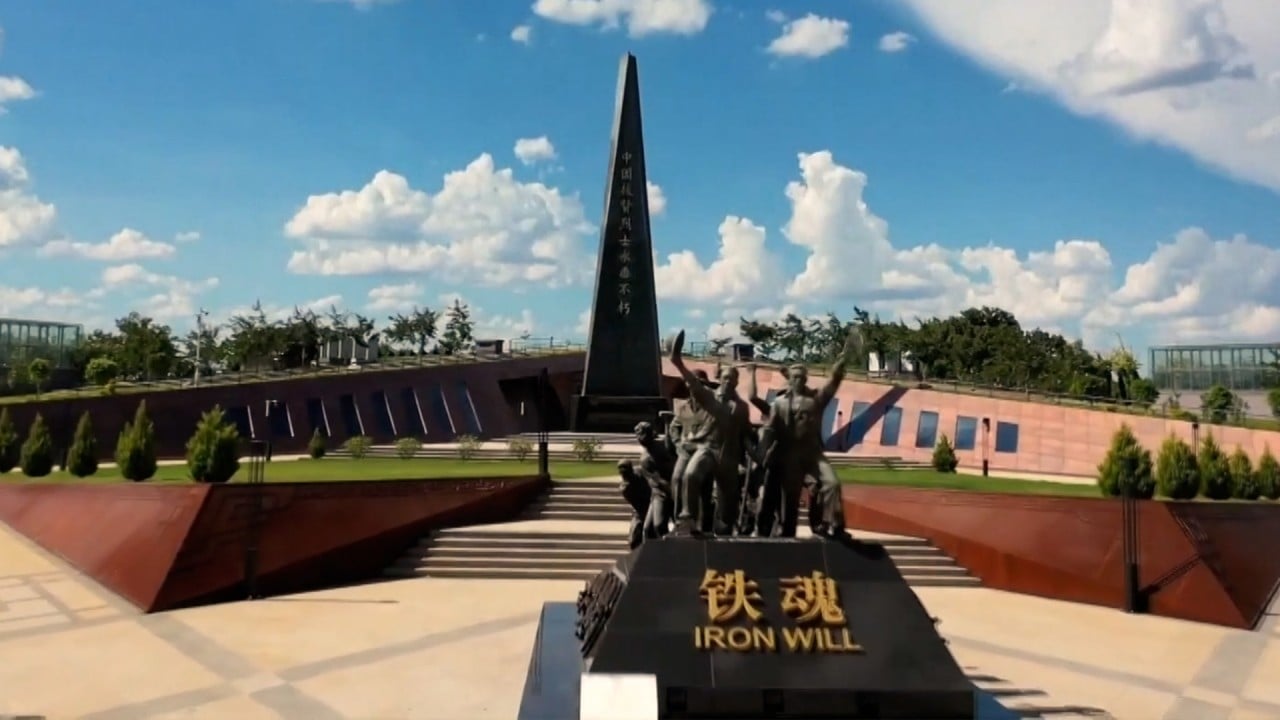
China hits back at Africa debt-trap claims with loan write-off offer
- Interest-free loans constitute just a small fraction – about 5 per cent – of the total loans China advanced to African countries
- Chinese academic says cancelling some loans is in line with Beijing’s foreign policy to help African nations hit by Covid-19 and global economic difficulties
China has announced plans to cancel a series of interest-free loans to 17 African countries amid a growing rivalry with the West and accusations that it is creating “debt traps” on the continent.
Diplomatic observers said the move announced by Chinese Foreign Minister Wang Yi last week only represented a small fraction of total debt China provided to Africa.
Addressing a virtual meeting related to the Forum on China-Africa Cooperation (FOCAC), Wang said 23 interest-free loans to 17 African countries due by the end of last year would be cancelled.
China will also rechannel US$10 billion of its International Monetary Fund special drawing rights (SDR) to African countries to help them recover from the devastating effects of the Covid-19 pandemic and debt crisis.
Pang Zhongying, an expert on international affairs at Sichuan University, said the announcement was a response to the “debt-trap diplomacy” accusations frequently levelled at China.
“For years, China has insisted it does not attach any political strings to its aid to Africa and elsewhere. But such claims have come under intense scrutiny over the years amid the intense US-China rivalry over Taiwan and other geopolitical hotspot issues,” Pang said.
“While it firmly rejects the allegation of Chinese ‘debt trap’ by the US and its allies, Beijing is keenly aware of risks of the rupture of the debt chain between China and its aid-recipient countries [such as Sri Lanka’s financial crisis], which could lead to a global debt crisis amid the Covid-19 pandemic and uncertainties in global economy.”
China’s loans to poor nations in the spotlight as IMF tightens debt scrutiny
“China clearly hopes to lure indebted African nations amid its rivalry with the West by cancelling some of the debts. But it remains to be seen if Beijing can achieve its goals. European nations and Japan have had similar experiences dealing with various debt crises in Africa in the past and the result may not be satisfactory,” Pang said.
China traditionally waives interest-free loans, which are offered by the China International Development Cooperation Agency (CIDCA), Beijing’s foreign aid agency. In 2018, CIDCA took over the role of China’s Department of Foreign Aid of the Ministry of Commerce.
But those interest-free loans constitute just a small fraction – about 5 per cent – of the total loans China advanced to African countries.
Deborah Brautigam, a professor of international political economy at Johns Hopkins University and founding director of the China Africa Research Initiative (CARI), said interest-free loans were “a low-cost way for Chinese leaders to appear benevolent”.
She said since 2000, Chinese leaders had made 11 separate pledges to write off outstanding debt for individual interest-free loans that had reached maturity.
“Since this was the only Chinese loan instrument used until 1995, when China Exim Bank started providing export credits, in the early years these loan write-offs could be fairly substantial,” Brautigam said.
Now, these loans averaged about US$10 million so the amount written off was a small fraction of total debt, Brautigam said.
As part of the FOCAC framework, Beijing last year said it had cancelled interest-free loan debts maturing at the end of 2020 for 15 African countries and promised to exempt least developed African countries’ debt incurred from interest-free loans maturing at the end of 2021.
Cancellations announced in Botswana, Burundi, Rwanda, Cameroon, the Democratic Republic of Congo, the Republic of Congo and Mozambique total at least US$113.8 million, according to CARI at the Johns Hopkins University School of Advanced International Studies.
CARI said China had cancelled interest-free loans in Africa amounting to US$3.4 billion between 2000 and 2019. But China’s overall lending to Africa stood at US$159.9 billion between 2000 and 2020. The billions of dollars of debt had gone into building motorways, ports, dams and railways.
The United States and some European countries accuse China of advancing an unsustainable amount of debt to African countries through the belt and road programme.
But the Chinese foreign ministry says those claims are a “lie” made up by US and some other Western countries to deflect responsibility.
The ministry cited international debt data from the World Bank showing that by the end of 2020, commercial and multilateral creditors accounted for 40 per cent and 34 per cent respectively for the public external debt of 82 low-income and lower middle-income countries. Bilateral official creditors took up 26 per cent and China less than 10 per cent, it said.
Also using World Bank data, British campaign charity Debt Justice said in a report in July that just 12 per cent of Africa’s external debt was owed to Chinese lenders, compared to 35 per cent owed to Western private creditors. The average interest rate on private sector loans is 5 per cent, compared to 2.7 per cent on loans from Chinese public and private lenders.
Yun Sun, director of the Stimson Centre’s China Programme in Washington, said forgiving zero-interest loans was not new, nor significant since “zero-interest loans only make a small fraction of China’s total lending to Africa”.
She said the bulk were in concessional loans and commercial loans. “This debt forgiveness does not change the big picture on the debt challenge,” Sun added.
Mark Bohlund, a senior credit research analyst at REDD Intelligence, said China regularly waived these kinds of interest-free loans extended directly by the Chinese government to developing countries for different uses.
“These loans are generally small, in the tens of millions of [US dollars] or smaller, compared to the loans of hundreds of millions, or in the billions, extended by China Exim Bank or China Development Bank,” Bohlund said.
This meant the impact on recipient countries’ indebtedness from the waiving of the government-to-government loans was marginal, Bohlund said.
Why small is beautiful for China on African belt and road
CARI notes in a 2020 study that although Beijing had cancelled debt in the past, those were mostly zero-interest loans which accounted for less than 5 per cent of Chinese loans advanced to Africa.
The rest of the loans are mostly advanced by China’s policy banks – including China Exim Bank and China Development Bank – in most cases as part of the Belt and Road Initiative.
China is yet to cancel concessional loans, lines of credit or commercial loans to Africa which account for the lion’s share of debt to African countries. However, China has in the recent past restructured debt owed by African countries and companies that had fallen into financial trouble.
Banks, including Chinese policy lenders, are more likely to lengthen the repayment period for troubled borrowers, add a new grace period, or refinance the loan but would not allow writedowns of the principal amount, according to Brautigam.
For example, when Ethiopia was unable to service debt it took to build a modern railway with Djibouti, it sought help from Beijing and had its debt rescheduled by China Exim Bank by extending the repayment period from 10 to 30 years.
But many African countries, including Angola, Kenya and Zambia, that applied for debt relief under the Group of 20 wealthiest nations’ Debt Service Suspension Initiative (DSSI), had their loans restructured by China. Further, countries such as Ethiopia and Zambia that applied to have their loans restructured jointly by their lenders under the G20’s new Common Framework have benefited from some Chinese debt relief.
On making available its special drawing rights to African countries, Bohlund said the transfer had the potential to be more significant, but it was so far unclear how such a transfer would be done.
He said G7 countries had indicated they would like to transfer their SDRs – which work like an overdraft – to African countries through the African Development Bank and other multilateral lenders, but it is not clear if China also intends to use this channel because Beijing views multilateral lenders as being dominated by G7 interests and has preferred to deal with developing countries on a bilateral basis.
Tang Xiaoyang, an international relations professor at Tsinghua University, played down the significance of Beijing cancelling some African loans.
“It has become a routine for Beijing to cancel mature, interest-free loans, which accounts for a small fraction of Chinese loans to Africa. It is also in line with China’s foreign policy to help African nations that have been hit hard by the Covid-19 crisis and global economic difficulties,” Tang said.
“While we don’t know the exact amount of loans it cancels, I think it mostly likely constitutes just a small part of China’s belt and road investment in the continent.”
Additional reporting by Shi Jiangtao




